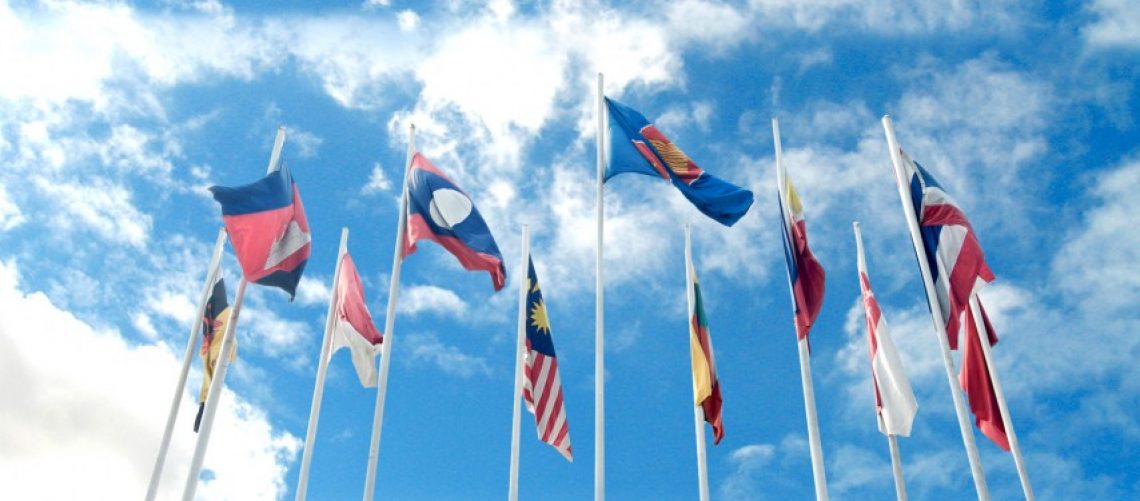On behalf of my ASEAN colleagues, I wish to welcome our Dialogue Partners participating in the Post Ministerial Conferences (PMC). I wish to extend our warm welcome especially to those who are participating in the PMC Sessions for the first time, namely H.E. Mr. Wolfgang Schussel, Vice- Chancellor and Foreign Minister of Austria; H.E. Mr. Tang Jiaxuan, Foreign Minister of China; H.E, Mr. Jaswant Singh, Deputy Chairman of the Planning Commission of India; H.E. Mr.Masahiko Koumura, State Secretary for Foreign Affairs, Ministry of Foreign Affairs of Japan; and H.E. Mr. Park Chung-soo, Minister of Foreign Affairs and Trade of the Republic of Korea. THE NEED FOR CEASELESS VIGILANCE Since our meeting in Kuala Lumpur a year ago, crucial and unpredictable events in the Asian region have raised alert levels globally. The impact of the financial and currency turmoil in Asia whose social backlash is yet to fully unravel – jolted the economic, social and political underpinnings of prevailing growth and development paradigms and is changing the drift of the current debate on globalization. The series of nuclear tests in South Asia, which aggravated tensions in the region, evoked the danger of nuclear proliferation not only in Asia, but in other regions as well. Meanwhile, concerted responses are called for to suppress the upsurge of concerns that transgress national frontiers such as environmental degradation, transboundary pollution, drug-trafficking, money laundering, and piracy. RECOGNIZING SHARED GLOBAL RESPONSIBILITIES Considering that the financial and currency turmoil in Asia has global roots as well as world-wide consequences, shared international responsibility in restoring economic stability in Asia must be recognized. Shared responsibility between- domestic borrowers and international lenders, between private business and the public sector, and between national agencies and multilateral institutions must be acknowledged. Despite the harsh social and political costs, ASEAN member countries have implemented economic stabilization and financial reform programs. At the international level, a parallel program of restructuring the international financial architecture must be undertaken. Such reforms must accord priority to a balanced approach in achieving socioeconomic objectives, particularly the consideration of the social dimensions in designing economic adjustment programs. Indeed, measures to mitigate the social impact of the financial crisis must be incorporated in the implementation of economic and financial measures meant to restore financial stability in the region. Our PMC session today is exceptionally significant and relevant in view of the paramount role of our Dialogue Partners in restoring economic vibrancy in the region. In addition to keeping their markets open, injecting new investments and sustaining fresh financing, our Dialogue Partners are urged to assume leadership in restoring economic vitality in the region and ensuring a robust global economic growth. In particular, the United States can contribute significantly to IMF’s expanded rapacity to respond to financial crises by ratifying the New Arrangements to Borrow (NAB) and the proposed quota increase in the IMF. Japan’s new government is encouraged to accelerate the implementation of the fiscal stimulus package and the reform of its financial and income tax system. China’s firm commitment to maintain the stability of the yuan is highly appreciated, while Europe’s economic strength can reinforce the recovery in Asia. ADDRESSING TRANSNATIONAL CONCERNS AND SOCIAL ISSUES On environmental matters, ASEAN initiated cooperation with Dialogue Partners on the establishment of the ASEAN Regional Center for Biodiversity Conservation (ARCBC), which is an ASEAN-EU project based in the Philippines. The control of the regional haze and transboundary pollution that beleaguered ASEAN during the past year was another opportunity for ASEAN member countries to cooperate with Dialogue Partners as well as regional and international institutions on a bilateral and regional basis. Three days ago, the ASEAN Foreign Ministers signed the Declaration for a Drug-Free ASEAN which seeks to eradicate the production, processing, trafficking and use of illegal drugs within ASEAN by the year 2020. I invite our Dialogue Partners to cooperate with us in attaining the goals of the Declaration. On human resources and development cooperation strategy, I am pleased to inform Your Royal Highnesses and Your Excellencies in my capacity as Chairman of the 31st ASEAN Standing Committee (ASC) of the progress of the establishment of the ASEAN Foundation, which was launched during the First ASEAN Informal Summit in Jakarta in 1996. Following the signing of the MOU on its establishment during the Second ASEAN Informal Summit in Kuala Lumpur in December 1997, the inauguration of the Foundation and the First Meeting of the Board of Trustees were held in Jakarta on 14 July 1998. The Foundation seeks to promote education, people-to-people exchanges, skills training, health care, and culture. While ASEAN member countries have pledged their contributions to the Foundation, ASEAN looks forward to intensifying our fund solicitation efforts through the assistance of Dialogue Partners, other foundations and relevant institutions as well as concerned individuals. In this respect, I would like to extend our appreciation to the Government of Japan for its pledged contribution of US$20 million. I would also like to invite other ASEAN Dialogue Partners to assist the Foundation. CONCLUDING REMARKS Your Royal Highnesses, Your Excellencies, Distinguished Delegates, As Chairman of this year’s PMC, the Philippines has received suggestions from our Dialogue Partners on the possibility of making some changes in the format and approach to our substantive discussions at the PMC 9+10 and 9+1 fora. This is perhaps another reflection of the speed of the changes that has engulfed our world. Recognizing the need to be constantly relevant and responsive, the Philippines has implemented on an experimental basis some of these proposals with the objective of enhancing cooperation between ASEAN and our Dialogue Partners. I trust that our meetings today and tomorrow will further strengthen and enhance the understanding and cooperation between ASEAN and our Dialogue Partners. Thank you.
OPENING STATEMENT OF SECRETARY DOMINGO L. SIAZON, JR. AT THE POST MINISTERIAL CONFERENCES MANILA, 28 JULY 1998
28 July, 1998







